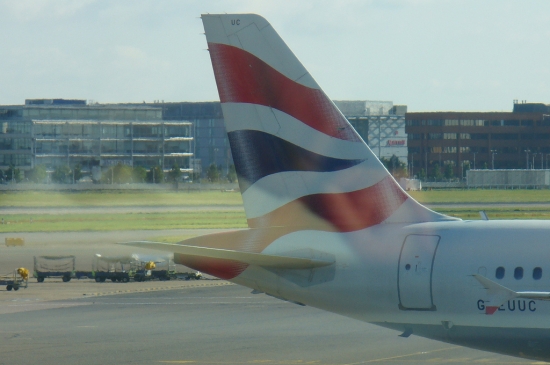China Investment Corporation (CIC), the sovereign wealth fund, has purchased a 10 per cent stake in Heathrow Airport Holdings. The firm which controls the UK’s largest commercial airport also owns other nationwide airports such as Glasgow, Stansted and Southampton – thus controlling a large proportion of flights in and out of the country.

CIC will pay £450 million to the company formerly known as BAA Ltd in return for a 10 per cent share in the business and its assets. While this is not a controlling share, it will be enough for the Chinese firm to exercise influence over the running of some of the UK’s major airports – thus allowing for the expansion of business channels between the UK and China.
In the agreement drawn up between the two firms, CIC will purchase a 5.7 per cent stake in FGP Topco – the holding company which owns Heathrow Airport Holdings Ltd – from Spanish company Ferrovial at a cost of £257.4 million. The remaining 4.3 per cent of CIC’s stake will be made up of shares sold by a number of FGP Topco’s investors for an additional cost of £192.6 million. In all, CIC’s 10 per cent stake will cost the sovereign wealth fund £450 million.
The Heathrow holding firm has received multiple international offers this year, with the CIC being the second corporation since August to express interest in purchasing a large stake. Qatar Holdings purchased 20 per cent of the company in August, although this deal is yet to be approved by the European competition regulators.
Part of the reason why UK firms are so attractive to international investors is, ironically, due to the double dip recession. As the economy has not yet fully recovered, assets are at a lower price than they would be in a time of substantial recovery, meaning that investors can pick up a percentage of a business relatively cheaply and see a bigger profit when the market picks up as a result.
Additionally, the Eurozone crisis is making Britain an attractive investment destination. As Britain is not part of the Euro, companies wishing to expand their interests into Europe see this country as a safer foothold than, for example, Spain or France – both of which are struggling as a result of the single currency.
However, not all countries are as confident about Chinese investments as the UK, with both the USA and Australia recently blocking bids by some of the country’s most successful firms due to “security issues”.
Earlier this year, Huawei Technologies – a Chinese computer network and telecoms firm – announced its intention to invest £1.3 billion into the expansion of the UK arm of the company. While David Cameron proclaimed that the move showed that the UK was “open for business”, it seems that the Americans are not so sure about the firm.
In fact, last month US officials warned against doing business with Huawei and another Chinese firm as they posed a risk to national security, while Australia blocked a bid by Huawei for work on its national broadband network.
However, senior manager at Beijing-based pension fund Australia Super, Stephen Joske, believes that the suspicion surrounding Chinese businesses is based on misconceptions about the country’s intentions.
He says; “It is fair to say that the UK has a more open relationship with China than many other major economies.
“There is certainly a push all around the world for scrutiny of Chinese business – it has been ringing alarm bells.
“It is unfair to an extent, as these deals are a win-win transaction. Politics has been overshadowing economics.”
Do you think the formation of a close partnership between UK businesses and Chinese investors is a good thing, or do you believe that controlling stakes of UK firms should remain firmly within this country? Is the suspicion shown towards Chinese investment by countries such as the USA and Australia simply down to political bias, in your opinion, or do you think there may be underlying reasons that, as yet, the UK has not recognized?
Previous Post
Westminster Considers Curb on Office Conversions